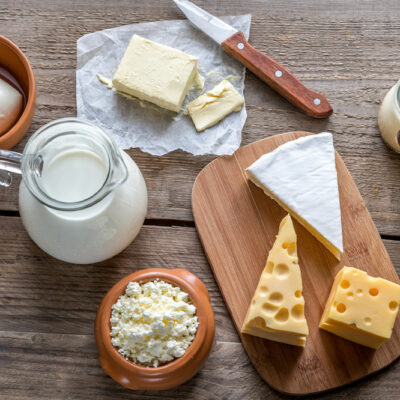
10 foods to eat and avoid for macular degeneration
Macular degeneration, also called age-related macular degeneration (AMD), is a prevalent eye disease. It causes a gradual loss of one’s central vision, making everyday tasks like reading and driving challenging. While the condition has no cure, individuals can control its symptoms and potentially slow its progression with a healthy lifestyle and nutrition. Here are a few foods to eat and avoid for managing macular degeneration and maintaining healthy vision in the long run.
Foods to eat for macular degeneration
The following foods can reduce the risk of this disease and improve overall eye health:
Spinach
Dark, leafy greens like spinach, kale, and collard greens are packed with zinc, copper, and antioxidants, elements that help protect the retina from damage.
Salmon
Fatty fish like salmon, mackerel, trout, and sardines are rich in omega-3 fatty acids. These healthy fats can reduce inflammation, slow macular degeneration progression, and promote eye health.
Carrots
Vibrant vegetables like carrots, sweet potatoes, and red peppers are excellent beta-carotene and vitamin C sources. These nutrients can support eye health by reducing macular degeneration risk.
Almonds
Nuts like almonds, cashews, peanuts, walnuts, and Brazil nuts have essential vitamins, healthy fats, and antioxidants. They can protect the eyes from oxidative stress and reduce the risk of eye disorders.
Brown rice
Whole grains like brown rice, quinoa, and whole wheat have copper, vitamin E, and zinc. These nutrients can help maintain macular health and reduce macular degeneration progression.
Eggs
Eggs are rich in lutein and zeaxanthin, which protect the macula from harmful UV light and oxidative damage. Including eggs in one’s meal plan can contribute to healthier eyes.
Foods to avoid for macular degeneration
Diabetes, high cholesterol, hypertension, and unhealthy food habits are risk factors for age-related macular degeneration. To reduce its likelihood, one must steer clear of:
French fries
A high intake of saturated and trans fats, often found in processed and fried foods like French fries, can contribute to inflammation and increase the risk of eye disorders.
White bread
Foods made using refined grains, like white bread, sugary cereals, and snacks, can lead to rapid blood sugar spikes. This may increase the of macular degeneration or exacerbate its symptoms.
Sauces
Excess sugar from desserts, sweets, snacks, and sauces can cause inflammation. These foods are risk factors for both diabetes and high cholesterol, which have been shown to increase macular degeneration risk.
Red meat
Processed and fast foods, including red meat, fatty beef, pork, lamb, packaged snacks, butter, and cheese, are often high in unhealthy fats, sodium, and preservatives. These can contribute to inflammation and oxidative stress, making them detrimental to eye health.
Types of macular degeneration
The macula is the part of one’s retina responsible for sharp central vision. With age, as well as bad lifestyle and food choices, this light-sensitive tissue can get affected and blur one’s vision, causing macular degeneration. The condition is divided into two types:
Dry macular degeneration
Eight out of ten cases are of this type. Dry macular degeneration is characterized by the accumulation of tiny protein deposits under the macula. It progresses slowly, causing gradual vision loss, distortion, and blind spots in the central vision.
Wet macular degeneration
It occurs when abnormal blood vessels grow beneath the macula. Blood leakage can cause rapid and severe central vision loss, often leading to more significant visual impairment than dry macular degeneration.


